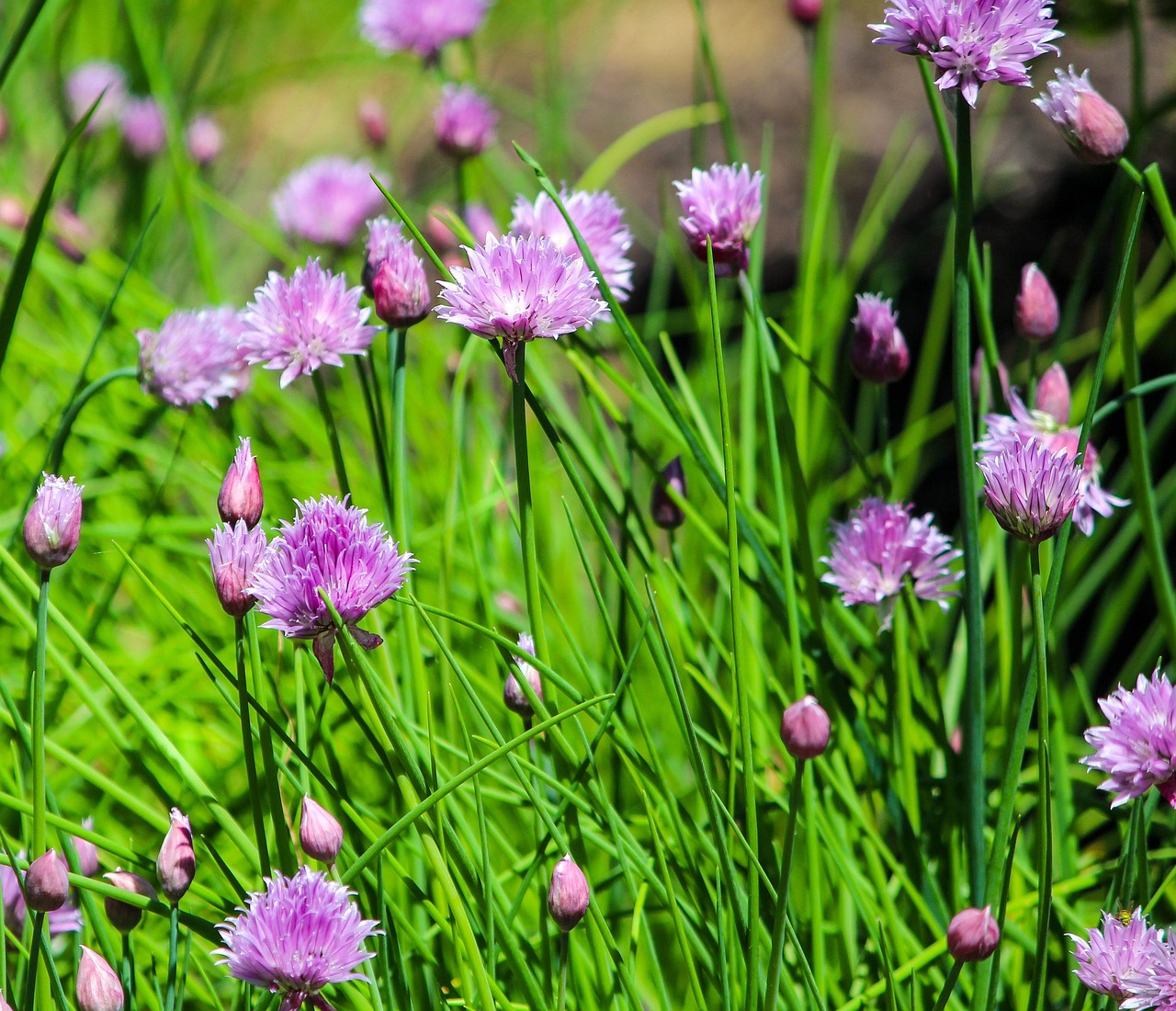
This post may have affiliate links. This means that sometimes when you click a link on our site and make a purchase on Amazon, we may earn a small commission at no additional cost to you. We only recommend products we truly believe in, and your support helps keep us running!
Are you looking for a way to enhance your garden’s biodiversity while also improving the growth and flavor of your chives? Look no further than companion planting! Companion planting is the practice of planting different species of plants together to benefit each other in various ways. In this article, we will explore 15 compatible companion plants for chives that will not only improve the health and yield of your chives but also add beauty and diversity to your garden.
10 Enchanting Allies for Your Chive Garden
1. Garlic
Garlic, a close relative of chives, is a natural ally that helps deter pests and improves the flavor of chives. Planting garlic near chives creates a powerful combination that repels aphids, spider mites, and other unwanted garden guests.
2. Carrots
Carrots and chives share a mutualistic relationship, as chives help deter carrot fly larvae, while carrots provide a natural mulch that helps retain moisture and suppress weeds.
3. Beans
Beans and chives are a dynamic duo that complement each other in the garden. Beans fix nitrogen in the soil, which benefits chives, while chives help deter bean beetles and other pests.
4. Lettuce
Lettuce and chives are a delightful pair that thrive together. Chives help deter aphids and other pests that may harm lettuce, while lettuce provides a natural mulch that helps retain moisture and suppress weeds.
5. Radishes
Radishes and chives are a fast-growing pair that complement each other in the garden. Radishes help break up compacted soil, which benefits chives, while chives help deter pests that may harm radishes.
6. Tomatoes
Tomatoes and chives are a delightful pair that thrive together. Chives help deter tomato hornworms and other pests that may harm tomatoes, while tomatoes provide a natural mulch that helps retain moisture and suppress weeds.
7. Peas
Peas and chives are a dynamic duo that complement each other in the garden. Peas help fix nitrogen in the soil, which benefits chives, while chives help deter pests that may harm peas.
8. Spinach
Spinach and chives are a delightful pair that thrive together. Chives help deter aphids and other pests that may harm spinach, while spinach provides a natural mulch that helps retain moisture and suppress weeds.
9. Cucumbers
Cucumbers and chives are a delightful pair that thrive together. Chives help deter cucumber beetles and other pests that may harm cucumbers, while cucumbers provide a natural mulch that helps retain moisture and suppress weeds.
10. Zinnias
Zinnias and chives are a delightful pair that thrive together. Zinnias help attract beneficial insects, such as bees and butterflies, which help pollinate chives and other plants in the garden.
11. Nasturtiums
Nasturtiums are another colorful companion plant that can help repel pests and attract beneficial insects to your garden.
12. Marigolds
Marigolds are a great companion plant for chives as they help repel harmful insects and attract beneficial ones. They also add a pop of color to your garden.
13. Broccoli
Broccoli and chives are another great pairing as chives help repel pests that can damage broccoli, while broccoli provides chives with the nutrients they need to grow.
14. Cabbage
Cabbage and chives make great companions as chives help repel pests that can damage cabbage, while cabbage provides chives with the nutrients they need to thrive.
15. Peppers
Peppers and chives make great companions as chives help repel pests that can damage peppers, while peppers provide chives with the nutrients they need to thrive.
Tips for Successful Companion Planting with Chives
Carrots and Chives
- Spacing Recommendations: Plant rows of chives spaced 12 inches apart, with rows of carrots in between.
- Planting Depths: Sow carrot seeds directly into the soil at a depth of 1/4 to 1/2 inch. Transplant chive seedlings at a depth equal to their root ball.
- Timing Considerations: Start chive seeds indoors 6-8 weeks before the last frost date. Directly sow carrot seeds outdoors 2-3 weeks before the last frost date.
- Complementary Growth Habits: Chives grow upright, while carrots grow underground, minimizing competition for space and sunlight.
- Succession Planting: As chives mature and are harvested, interplant with a new batch of carrot seeds to maintain a continuous crop.
Tomatoes and Chives
- Spacing Recommendations: Plant chives around the base of tomato plants, leaving a distance of at least 6 inches between the chive clumps and tomato stems.
- Planting Depths: Transplant tomato seedlings deep into the soil, burying the stem up to the first set of leaves. Plant chive seedlings at a depth equal to their root ball.
- Timing Considerations: Start chive seeds indoors 6-8 weeks before the last frost date. Transplant tomato seedlings outdoors after the danger of frost has passed and soil temperatures have warmed.
- Complementary Growth Habits: Chives provide pest protection for tomatoes, while tomatoes offer structural support for chive growth.
- Succession Planting: Replace spent tomato plants with new chive seedlings in the same area once the tomato harvest is complete.
Spinach and Chives
- Spacing Recommendations: Plant rows of chives spaced 12 inches apart, with rows of spinach in between.
- Planting Depths: Sow spinach seeds directly into the soil at a depth of 1/2 inch. Transplant chive seedlings at a depth equal to their root ball.
- Timing Considerations: Start chive seeds indoors 6-8 weeks before the last frost date. Directly sow spinach seeds outdoors 4-6 weeks before the last frost date.
- Complementary Growth Habits: Chives deter aphids that may harm spinach, while spinach provides shade and moisture retention for chive roots.
- Succession Planting: As spinach is harvested, replant the space with a new batch of spinach seeds or another cool-season crop compatible with chives.
